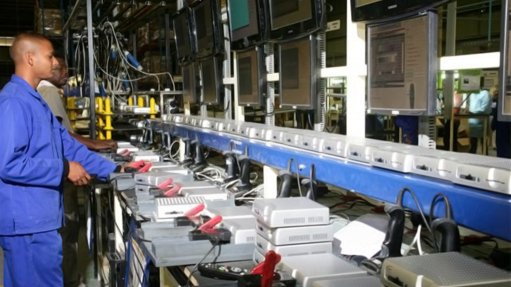
The Democratic Alliance (DA) on Tuesday said it was seeking legal advice after questioning the validity of the now-closed tender for the R4.3-billion contract to supply the government-subsidised set-top boxes (STBs) needed for South Africa’s long overdue digital terrestrial television (DTT) migration.
Shadow Minister of Telecommunications and Postal Services Marian Shinn raised concerns that the process might have been accelerated too quickly in a bid to meet the looming June deadline for the switchover from analogue broadcasting to digital.
“The DA is concerned that in a rushed attempt to partially meet the digital migration deadline of June 17, 2015, by delivering some STBs this year, proper processes and evaluation may be circumvented and sidelined, rendering the tender process unlawful,” she said.
The Universal Service Agency of South Africa (Usaasa) issued multiple tenders on November 21 requesting relevant companies to bid for the contract to supply terrestrial-based STBs – with separate quotations requested for decoders with the contentious control system and without – as well as the supply of direct-to-home (DTH) STBs, which would be used in regions where there were no terrestrial transmissions.
The tender closed on Tuesday.
Government planned to subsidise up to 66% of the price of a DTT STB and up to 77% of the price of DTH STBs for five-million of the poorest households.
In October, the agency moved to recommend to the Department of Telecommunications and Postal Services the qualifying criteria of the poor TV-owning households that qualified for STB subsidies; the manner in which households were required to apply for STB subsidies; and the method in which the qualifying households could acquire the STBs as part of migrating to the digital television platform.
However, Shinn said the “low-key manner” in which the tender process was undertaken, which, she claimed, sidelined many companies that would have submitted bids, “cast doubt” over whether the process would be fairly adjudicated.
“Most of the 145 companies that attended the bidders’ briefing meeting on December 2, 2014, were [directly] invited,” she explained.
Further, the fact that the tender document requested two prices – for boxes with a STB control system and for those without – indicated that there was still no certainty about whether the subsidised STBs would have controlled access.
Further, Shinn pointed out that the Broadcast Digital Migration policy had not yet been approved by Cabinet, while the DTH standards, the draft of which was published for comment on December 12, had not yet been finalised.
The financing for the subsidised STBs was also queried by Shinn, who noted that only R2.39-billion of the required R4.2-billion had been approved by National Treasury for payment through the Universal Service Access Fund to secure the subsidised decoders.